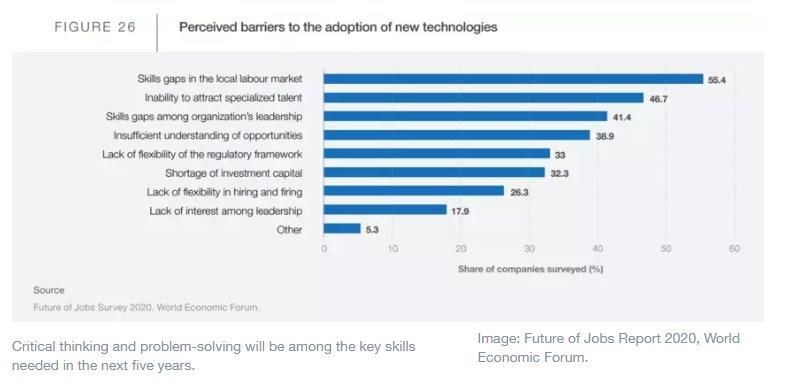by Victoria Masterson*
Making smart decisions today could set up the world’s young people for success in the green jobs of tomorrow.
But shaping those decisions can be tricky as many of those future jobs don’t yet exist.
The United Nations Environment Programme has stepped in with a helping hand in the shape of GEO-6 for Youth - a digital guide on sustainable career choices and the skills required to thrive in green industries.
Here are six key skill categories that can help you build a successful career in the future.
Science skills: The green economy of the future will be heavily reliant on workers with a strong science background. Key roles will include environmental scientists, biologists, hydrologists and biochemists. People in these jobs will monitor, manage and protect natural resources including land and valuable water supplies.
Architectural and planning skills: Buildings will become more energy efficient, with fewer resources used to construct and operate them. Architects and planners will design these buildings to comply with environmental regulations and client demands for green spaces.
Green engineering and tech skills: Today’s young people will be tomorrow’s green engineers, helping to design and maintain solar panels, wind turbines, low emissions vehicles and other green economy technology.
Agriculture skills: As farming and food supply becomes more sustainable, there’ll be a growing number of green jobs in areas such as organic farming, urban farming and precision agriculture. This involves using data to measure and improve farming efficiency.
Environmental justice skills: Workers in this field will operate at the intersection of human rights and environmental rights. They will gain legal, social and historical awareness to ensure humanity does not repeat the mistakes of the past which led to racial and social injustice and poor environmental and social health.
Systems skills: The green economy will need workers who can design, operate and monitor a wide range of systems. They’ll need to assess systems against performance indicators and find ways to optimize and improve system operations. They’ll need skills in macroeconomics to build sustainability into long-term infrastructure projects.
Green economy jobs
Millions of new jobs and careers will be created in the green economy. But creating new jobs is only part of the equation. Developing an appropriately skilled workforce is critical.
According to the World Economic Forum’s Davos Labs Youth Recovery Plan 2021, almost half of young people feel they don’t have the right skills to guarantee them a dignified job in the next five to 10 years.
The report sets out 40 policy recommendations by young people aged between 20 and 30. These include offering tax credits to companies investing in reskilling or upskilling – and creating an online skills aggregator that pairs the future skills needs of cities with upskilling or reskilling initiatives.
Green energy skills
The demand for green skills is particularly acute in the energy industry. Estimates suggest it could need 400,000 new recruits by 2050, “more than half of them in roles that don’t currently exist,” says Steve Holliday, president of the Energy Institute.
Alongside engineering roles, diverse skills like behaviour change, digitalization and data will also be needed, he adds.

Reskilling for the future
Technology adoption is a key driver in the development of skills required for emerging sectors.
In its Future of Jobs Report 2020, the World Economic Forum finds that adopting cloud computing, big data, artificial intelligence and other technologies are high priorities for business leaders.
“On average, companies estimate that around 40% of workers will require reskilling of six months or less,” the report says, adding that, “94% of business leaders report that they expect employees to pick up new skills on the job, a sharp uptick from 65% in 2018.”
*Senior Writer, Formative Content
**first published in: www.weforum.org




 By: N. Peter Kramer
By: N. Peter Kramer
